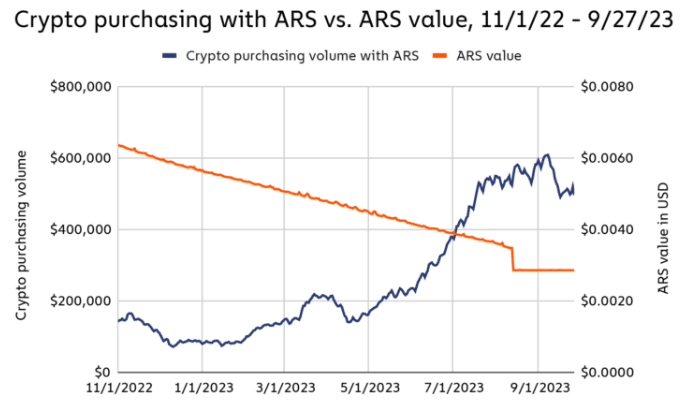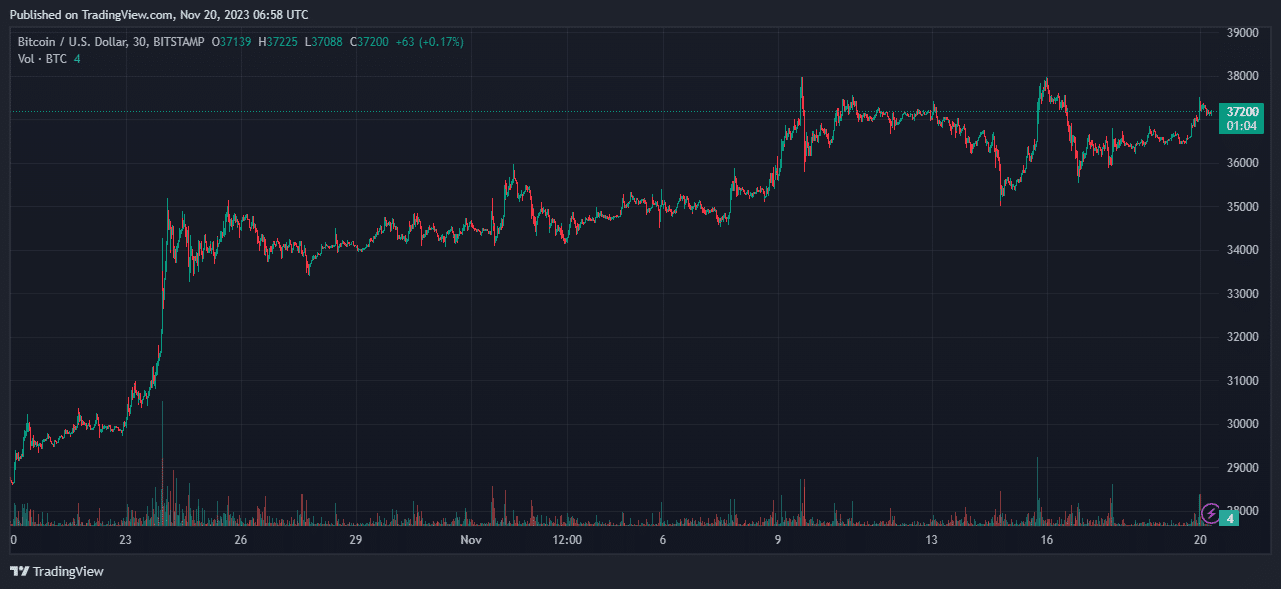Posted:
- Argentina secured 15th position in Chainalysis’ 2023 Global Crypto Adoption Index.
- Milei is among a long line of politicians who are increasingly embracing crypto.
Argentina has elected pro-Bitcoin candidate Javier Milei as its new president, Reuters reported. He landed some 56% of the vote, versus just over 44% for his rival, Sergio Massa.
Argentina is facing high inflation and poverty; these issues dominated the election. Milei has lambasted the country’s central bank for the economic ills plaguing the country.
He referred to the central bank as a “scam” through which politicians exploit the masses with inflationary tax.
Argentine peso (ARS) recorded over a 140% increase in annual inflation in the last 12 months.
Why Argentina has been quick to adopt crypto
Chainalysis recently put Argentina on the 15th position in its 2023 Global Crypto Adoption Index. Among the Latin American countries, only Brazil was ahead of Argentina — the former positioned at 9th position.
Chainalysis published a report in October, shedding light on crypto trends in Latin America. It highlighted that crypto purchasing trended up in Argentina as the peso steadily lost value.
It really spiked in mid-April, around the time Argentina’s inflation crossed 100% for the first time in three decades.
There was a small drop in crypto purchasing beginning in September, soon after the peso’s value stabilized.
Clearly, the instability surrounding the peso is behind a large section of Argentines choosing crypto.
Crypto-friendly politicians emerge from across the Americas
The new president of Argentina is among the emerging list of politicians who are embracing Bitcoin and the broader crypto ecosystem as an alternative model of the national economy. But Milei’s policy is nowhere close to that of Nayib Bukele, the president of El Salvador.
In 2021, Bukele introduced Bitcoin [BTC] as a legal tender in the Central American country. The move sparked loud criticism from the International Monetary Fund (IMF) among other global financial institutions. But Bukele didn’t withdraw from his belief in crypto.
In the United States, Vivek Ramaswamy has emerged as the leading votary of crypto. Ramaswamy is the second-most popular Republican candidate after Donald Trump for the 2024 Presidential election.
Ramaswamy announced that he was working on a “comprehensive crypto policy framework” at a crypto conference in September. His campaign is accepting Bitcoin donations, as he announced in May.
Just announced we’re officially accepting #Bitcoin donations.
Give $1.
Let’s make the 2024 election a referendum on fiat currency. https://t.co/KrHJdomtCh pic.twitter.com/OkVmoBmTFz— Vivek Ramaswamy (@VivekGRamaswamy) May 20, 2023
Indira Kempis is a Mexican Senator who is well-known for introducing crypto legislation in the country’s parliament. First, she proposed a central bank digital currency (CBDC) bill last year.
After facing intense criticism, she included accepting Bitcoin as legal tender. The bill has faced intense scrutiny in the crypto community. A few months ago, Kempis announced her intention to become the first woman to become a Presidential candidate in Mexico.
Meanwhile, Bitcoin was showing no signs of slowing down, as it was trading well above the $37k mark at press time.



